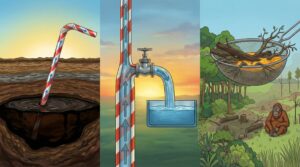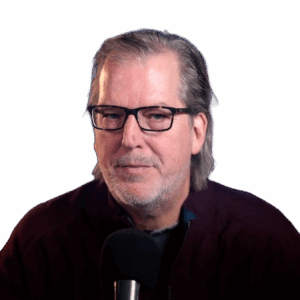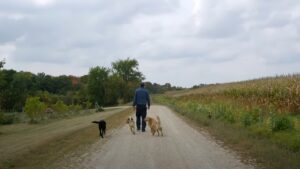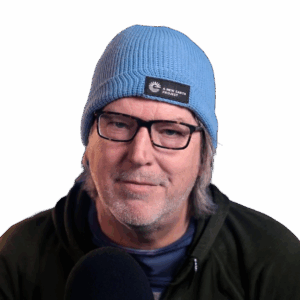
#90 | Frankly
Net Zero and Other Delusions: What Can’t, Won’t and Might Happen
Description
Language is one of humanity’s most unique and powerful tools. We are amazingly good at imagining the pictures created through words – almost to the point that even the most fantastical things can seem real. But how might this extraordinary ability backfire as we try to chart the course for the 21st century?
In this Frankly, Nate explores the limitations of using our imaginations to shape our understanding of what’s possible through the use of three categories: what can’t happen, what won’t happen, and what might happen. Nate demonstrates how this framework can be used by going through one example of the many hurdles standing in the way of humanity – as we currently consume today – reaching Net Zero carbon emissions by 2050.
How are today’s societal goals shaped by unrealistic expectations of what’s possible under our current biophysical reality? What ‘bottlenecks’ constrain the possibilities of the future, and how might these change our expectations and preparations for what’s to come? Finally, how can we use the logic of aggregate probability in our own lives to push the initial conditions of the future towards the best likelihoods for all life on Earth?
In French, we have a motto that says that a simple drawing is often better than a long explanation. Jean-Marc Jancovici Carbone 4 President
That’s very understandable because with left atmosphere thinking, one of the problems is that you see everything as a series of problems that must have solutions. Iain McGilchrist Neuroscientist and Philosopher
We can’t have hundreds and hundreds of real relationships that are healthy because that requires time and effort and full attention and awareness of being in real relationship and conversation with the other human. Nate Hagens Director of ISEOF
This is the crux of the whole problem. Individual parts of nature are more valuable than the biocomplexity of nature. Thomas Crowther Founder Restor
Show Notes & Links to Learn More
Download transcript00:18 – Vladimir Putin
01:10 – Net Zero Emissions by 2050
02:13 – Thermodynamics
02:48 – Path Dependence
03:28 – Aggregate Probabilities
00:00 – Ceteris Paribus
07:05 – CCS (Carbon Capture and Storage)
07:13 – 40 Billion Tons [of CO2 We Emit]
07:14 – We are growing fossil fuel use twice as fast [by volume] globally as we’re growing renewables
08:33 – Financial Overshoot
08:34 – Trump Pulling Out of Support of Ukraine
09:13 – Tariffs
09:31 – Petrodollar Debt-Based System
11:08 – Pete Hegseth, Use of Signal
11:29 – Complexity Risk [in Frankly 89]
11:36 – Artificial Intelligence
11:44 – ASI (Artificial Super Intelligence)
11:47 – Artificial General Intelligence
12:04 – Global Supply Chains
12:23 – Strait of Hormuz
13:01 – Tesla Boycotts
13:37 – Decarbonization
13:40 – Rematerialization
14:22 – Bayesian Inference, Bayesian Probability
14:32 – Conditional Probability
15;55 – D.J. White
15:58 – The Bottlenecks of the 21st Century
18:48 – Ecological Feedback






